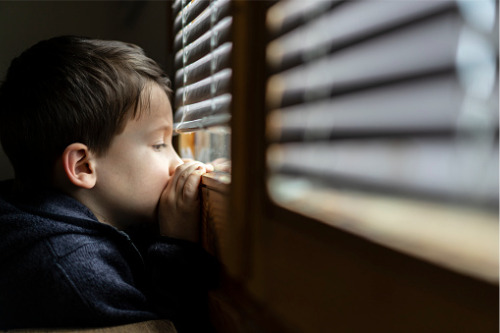
Several reports have already been published showing how social isolation resulting from coronavirus restrictions and school closures can adversely impact the mental health and wellbeing of children.
One such study, conducted by UK researchers in June, found that social isolation and loneliness during the pandemic increased the risk of depression and anxiety even in previously healthy children, and the effects could linger for years.
In Australia, the government-imposed lockdowns and social-distancing measures in previous months meant that children were not allowed to go out and play with other children. Although restrictions have eased recently, some children have not yet been able socially engage with their peers the same way they did before the outbreak.
In an article published in The Conversation, Pasi Sahlberg, Professor of Education Policy at the University of New South Wales, and Sharon Goldfeld, Director at Center for Community Child Health Royal Children's Hospital and Professor at the Department of Paediatrics at University of Melbourne, explained the importance of play during this difficult time and shared what parents can do to support their children.
“When children can’t play for any reason, anxiety and toxic stress can harm the healthy development of social behaviours,” the experts wrote.
“During the pandemic, play can be an effective tonic for stress and can encourage the development of positive behaviours.”
The experts added that the positive impact of play becomes even more powerful when children play together.
“Social play can help children develop skills in cooperation, communication, negotiation, conflict resolution, and empathy,” they wrote.
“In social play, children can rehearse and role play real-world situations safely. Through play, they make sense of the world and process change.”
The experts encourage parents to continue playing with their children as this will help them “play better with their peers.”
“The most important thing you can do is to make time every day for your children to play. Take play time seriously and show your children you value it for the benefit of their well-being, health, and learning,” they wrote.
According to the experts, digital devices can also provide children a way to play together when meeting their friends is not possible, but in-person social play provides more long-lasting benefits.
The type of scenery can also amplify the benefits of play, they added.
“Parks, green spaces, and quiet streets are suitable for outdoor play. Natural environments both soothe and stimulate children, while connecting them to their environment and community.”
Finally, the experts advised parents to be good role models to their children.
“Children often mimic their parents. The best way to ensure children grow up healthy and happy is to be a role model to them. More play, and enough quality time outdoors with children is good for your own health and happiness, too.”


